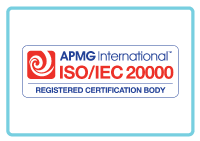- About Us Show more
- About Us Show more
-

- UNICERT offers quality value-added assessment services bringing consistency, optimisation and efficiency to improve clients’ management systems, with minimal disruption and cost to the operations.
- Find out more
-
- Services Show more
-

Certification
Formally confirming that your products and services meet all trusted external and internal standards.
Learn More
Inspection
Validating the specifications, value and safety of your raw materials, products and assets.
Learn More
Testing
Evaluating how your products and services meet and exceed quality, safety, sustainability and performance standards.
Learn More
Training
Equip your team with the vital training they need to remain at the top of their profession.
Learn More
-
- Services Show more
- Information Show more
- Information
Show more
-

- For more details of UNICERT and accreditation mark information please communicate by email: info@unicertglobal.com
-
- Standards & Industries Show more
- Contacts Show more
-
-
Global Reach
- UNICERT is the industry leader with many regions in the world. Whether your business is local or global, we can ensure your products meet quality, health, environmental, safety, and social accountability standards for virtually any market around the world.

-
-
- Worldwide Show more

GMP
Top Quality Assurance
Adherence to international quality standards has positive repercussions for organizations, bringing superior quality products on the global marketplace. Standards have been defined for manufacturing practices to increase efficiency, reduce costs and assure consistent quality. Good manufacturing practices comes with augmented benefits for both businesses and the end consumers. It ensures legal compliance, the maintenance of the highest quality standards and gives manufacturers a competitive lead in the market. Therefore, organizations stand to only benefit by incorporating good manufacturing practices.
What is GMP?
GMP or Good Manufacturing Practice are the regulations promulgated by the US Food and Drug Administration under the authority of the Federal Food, Drug, and Cosmetic Act of the United States. These regulations require that manufacturers, processors, and packagers of drugs, medical devices, some food, and blood take definitive measures to ensure that their products are safe, pure, and effective.
The regulations laid down by GMP require strict adherence to quality in manufacturing, which enables companies to ensure the safety of their products and avoid errors. This offers consumers high protection as they purchase only safe products. GMP regulations are enforceable by law and failure in compliance can result in product recall, fines and other penalties.
GMP regulations covers record keeping, personnel qualifications, sanitation, cleanliness, equipment verification, process validation, and complaint handling among other issues. GMP requirements are general in nature which gives manufacturers the flexibility to interpret which controls are suitable for the business and how to implement them for optimal results.
What are the key benefits of GMP?
Benefits of GMP Certification
- Enhances the food safety management system
- Increases consumer confidence in your products
- Helps to decrease operating costsdue to rework and penalties due to non compliance
- Increase in efficiencies
- Helps boost export opportunities
- Reduced duplication of inspections
- Cost saving
CERTIFICATION
ACCREDITATION









Copyrights © 2020 All Rights Reserved.


